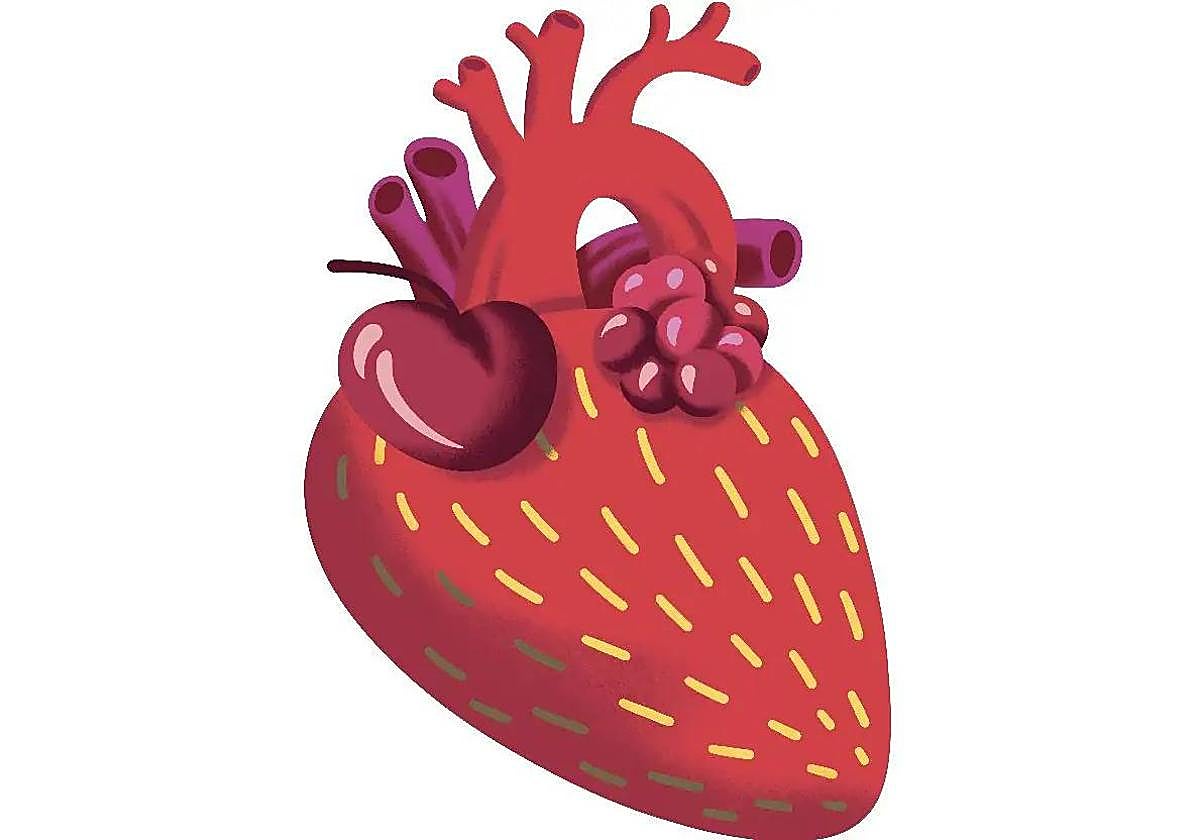Eat more carrots, tomatoes and peppers to lower cholesterol
Recent scientific studies support that view that betacarotenes reduce fat in the blood
Marta Fdez. Vallejo
Madrid
Friday, 24 November 2023, 17:27
Managing our cholesterol is a headache for a hefty proportion of the population. Justifiably so. Too much 'bad' cholesterol (LDL) is a red flag that we are at greater risk of heart attack or stroke, two physical ailments that have become the leading causes of death across the world.
It is already known that diet plays a key role in cardiovascular health. Increasingly more research supports the view that giving weight in the diet to foods rich in beta-carotene plays a fundamental role in keeping the arteries 'clean' of fat.
Beta-carotenes are pigments belonging to the group of carotenoids, responsible for the yellow, orange and red colours present in many fruits and vegetables.
We can find fat-busters in:
-
Reds to yellows: carrots, tomatoes, sweet potatoes, melon, oranges, peppers, mangoes, papaya, apricots, medlars (Japanese loquat), pumpkin and beetroot.
-
Greens: Lettuce, broccoli, spinach, chard and cabbage.
"A high level of carotene in the blood is related to a lower presence of atherosclerosis [coronary artery disease] and, therefore, a lower risk of cardiovascular diseases."
This is the conclusion of a new research study on obesity, lipids and diabetes as published in the journal Clinical Nutrition.
Better news for women
Their research allowed them to verify this relationship between carotenes and the lower presence of fat in the blood.
"We can confirm that a diet rich in fruits and vegetables and thus in carotenes reduces the risk of suffering from cardiovascular diseases," stated Gemma Chiva, part of the research team and professor at the Open University of Catalonia (UOC). Furthermore, the study detected that this beneficial effect of carotenes occurred "especially in women".
So, we should boost our diets with these fat-busting foods to help our arteries.
"The best source of beta-carotene lies in yellow and orange vegetables (carrot, sweet potato and pumpkin), similarly-coloured fruits (apricot, melon, papaya, mango, nectarine, peach), green leafy vegetables (spinach, broccoli, savoy cabbage, kale, chicory, endive, watercress, parsley, pepper) and seaweed (spirulina and chlorella)," advised nutritionist Marta Ros.
But many of today's diets include too many ultra-processed foods and lack fruit and vegetables, causing nutritional deficits in the population.
"The estimated average amount of total beta-carotene currently consumed in Spain and Europe is below the recommended intake," warned Ros.
Heart attacks and strokes
A diet replete with vegetables and fruits rich in beta-carotene can help reduce the incidence of cardiovascular diseases. But how does the relationship between fats and heart attacks or strokes work?
"The accumulation of fat in the arteries in the form of atheromatous plaques causes a decrease in the internal diameter of the artery, thus making blood circulation difficult," explained Gemma Chiva.
Atheromatous plaques can break loose, forming clots that cause myocardial infarctions when blood does not reach the heart, or ischemic strokes, when it does not reach the brain.
Strokes are already the second highest cause of deaths in Spain. For women it is number one. Suffering a stroke has also become the main cause of acquired disability in adults and the second biggest cause of dementia.
Helping avoid eye disease and diabetes
Beta-carotenes, which are converted into vitamin A in our bodies, are especially important in preventing eye diseases. Since the human body cannot produce it, we have to get it through food. A Harvard study highlighted strawberries, blueberries, blackberries and carrots as some of the most beneficial foods for eye health. Specifically, they help prevent the progression of macular degenerative disease, high blood pressure and dry eyes. Beta-carotene may also lower the risk of type 2 diabetes, according to research from Stanford University School of Medicine.
